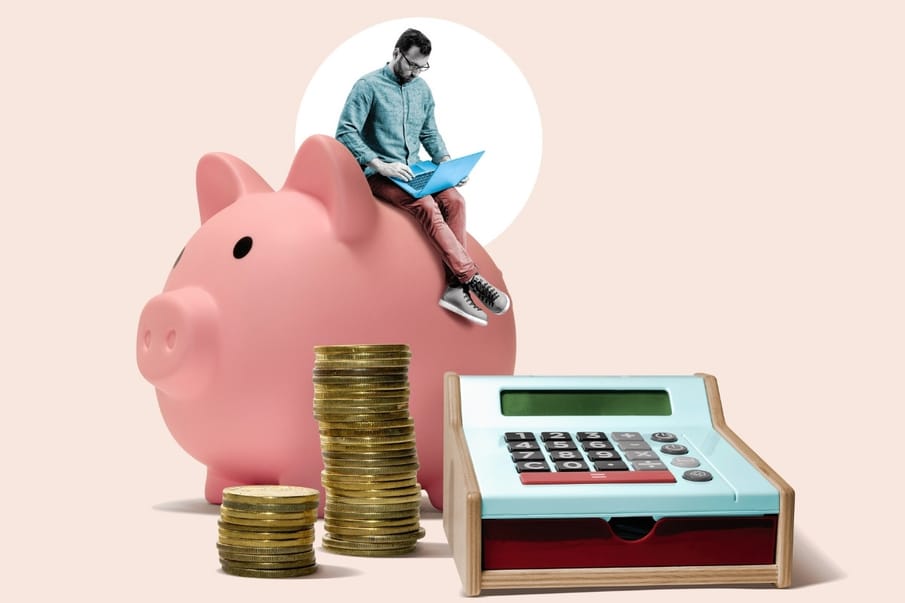A guide to the problems with the banking industry, and how to find workarounds that align with your values
Trying to live according to our personal values within a flawed, and in many ways unethical, world order is a source of stress for many people these days. Our internal compass drives the way we shop, how we eat, and other lifestyle choices – from the huge to the infinitesimal. But alongside making more ethical choices in supermarkets and online, one choice that is incredibly impactful, and often under-appreciated, is how we bank.
For many of us, our choice of bank is made somewhat arbitrarily as a teen or young adult, choosing the same high street branch our parents used, or who had the best student overdraft offering – and then we remain, not giving much thought to how our earnings, savings, and investments shape the world we live in. But the truth is that where we bank is one of the most important choices we can make when it comes to our ethics. In fact, a 2025 report by campaign group Make My Money Matter found that switching to a sustainable bank has a bigger impact on your carbon footprint than both giving up flying and going vegan combined.
Why your banking matters
When money is deposited into your bank account, it doesn’t just stay there. The bank uses your money to invest, loan, and fund things – and who benefits from this is key to understanding why your choice matters.
Many high street banks use customer deposits to finance things that you might never actively choose to invest in, like fossil fuel companies, deforestation, mining, and other environmentally damaging projects. Arms manufacturers, as well as gambling and tobacco companies – all of which can have a devastating impact on human life – might also be beneficiaries, without you even knowing it.
Banking is one of the largest hidden contributors to the climate crisis, according to the Banking on Climate Chaos 2025 report, which found that the 65 biggest banks globally committed $869 billion to fossil fuel companies in 2024. Disappointingly, two-thirds of these banks actually increased their fossil fuel financing from 2023 to 2024, as political sentiment and policy shifted on Net Zero targets.
This largely invisible part of personal finance might come as an unwelcome surprise – after all, we’re taught to think about our money in terms of its role in our lives, rather than its global impact. But once you know about the secret double life of your money, you might choose to bank differently.
Banking green flags
It’s important to know what to look for when finding the right home for your finances. One major green flag to look for is transparency: does your bank share information about its operations, goals, and investments? You might also look for a B-corp certification, or recognition from independent bodies as to a bank’s green credentials. Switch It Green and Ethical Consumer are great sources of information.
Once you’ve done your research, you may not find a perfect solution, but you can still make a positive change.
Stress-free switching
If you’ve reviewed your current bank’s ethical credentials, and decide it’s time to switch, you should decide your priorities and non-negotiables before committing to a new provider. These could be ethical, but they could also be to do with functionality, so if you need your account to have certain features bear this in mind.
While your main priority in choosing your new bank might be finding one that doesn’t fund certain things (like fossil fuels, arms, and tobacco) you could also look for one that is actively investing in green projects and ethical initiatives.
Once you’ve laid out your requirements clearly, do your research. Triodos Bank, Co-Operative Bank, and Nationwide Building Society are good places to start, but many building societies score well with a number of independent bodies. Newer banks, like Starling and Monzo, offer more transparency than high street banks, and might represent a middle ground for those wanting an account with additional budgeting and money management tools.
For the switch itself, if the admin seems daunting, you may be able to use the Current Account Switch Service (CASS), to make things smoother. All you have to do is initiate the process, then your new bank will switch your payments and transfer your balance, and your old bank will take care of closing your account.
If you’re nervous about moving all your money somewhere unfamiliar, you could begin with a small savings or spending account, and gradually transition as you get more comfortable.
Even small changes count
Climate anxiety can have a huge impact on mental wellbeing – we often feel powerless in the face of frightening statistics in our feeds, and natural disasters in the news. Switching to an ethical bank is not just a practical defunding of companies you disagree with, and a contribution to forces for good, it’s a statement of intent. The more people choose to vote with their money, the more banks will be pushed to review their policies and practices.
It may seem insignificant, but aligning your money with your values is a quiet act of respect for the planet, for humanity, as well as yourself.


Comments